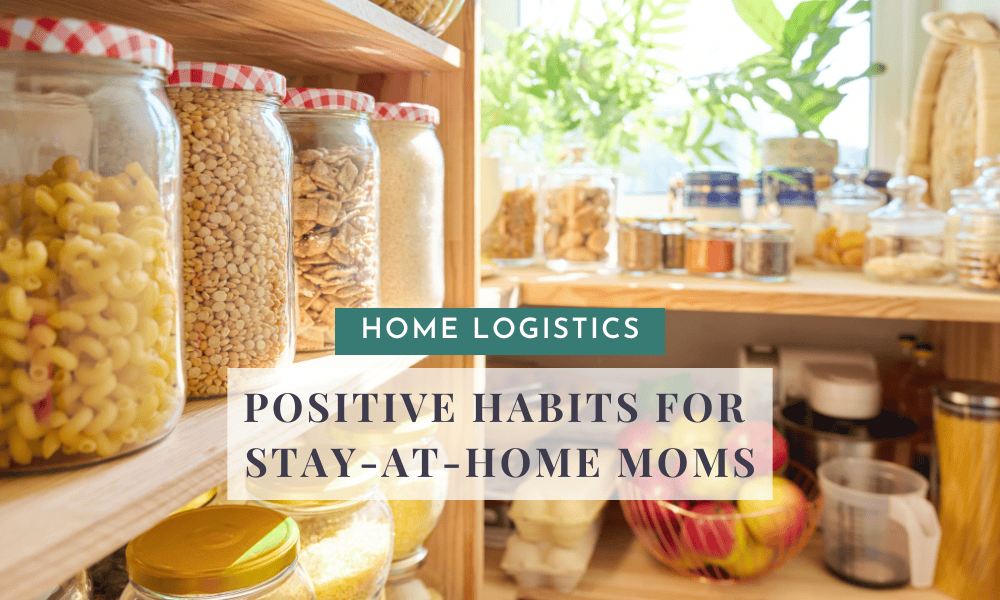As a mother of eleven children, I have learned over and over the value of being prepared. Prepared for what? Well, prepared for any scenario I can think of (within reason).
Being prepared is not just for preppers, conspiracy theorists, paranoid people, or people of specific religions. There is actually a lot of wisdom in being prepared as a general life principle.
Being prepared for emergencies, illnesses, stressful life events, extra dinner guests, and even being away from home makes it so much easier to smoothly navigate life’s twists and turns.
Being prepared is so important that it’s actually the motto of the Boy Scouts of America.
Being Prepared For Illness
Illness preparation (in my home) is one of the most important preparations I do. With a large family, during cold and flu season, we come down with something a few times per season.
Here’s a list of illness preparation items I do my best to keep on hand:
- Honey Throat Lozenges
- Essential Oil Vapo Rub
- Digital Thermometer
- Cold Packs
- Heat Pack
- Ibuprofen
- Saltine Crackers
- Gatorade
- Ginger Ale
- Elderberry Syrup
- Herbal Cough Syrup
- White Willow Bark Capsules (we use this instead of acetaminophen)
- Various herbal teas
- Local Honey
- Home-canned chicken soup
- Home-canned broth
When illness hits and you aren’t prepared, it’s not only inconvenient, but it delays your response to the illness.
For example, I like to make a gallon of elderberry syrup at a time (this doesn’t last as long as you would think with such a large family!). So let’s say a few children start coming down with a cold…if I’m out of elderberry syrup, that delays my response time, which means we may end up dealing with the illness longer than necessary.
Or let’s say the baby starts coughing towards bed time. If I have chest rub, I can put it on her and she can go to bed and probably sleep through the night.
Keeping the essentials in stock in your home makes the inevitable illnesses that come with family life so much easier to navigate!
Earlier this month I took an inventory of everything I have plenty of, and what I need to stock, and now I am prepared!
Being Prepared In The First Aid Cabinet
Being prepared in the first aid cabinet is just as important as being prepared for illness! It’s important to not only have a well-stocked first aid cabinet, but to actually keep it organized and know what is in it as well.
I used to have my first aid supplies in two different areas, and this created so much unnecessary confusion…I never really knew what I had and what I needed to buy more of, it was a mess!
Now, we have one big cabinet in the laundry room with all of the major supplies, and I keep an inventory sheet so that I know exactly how much of everything I have, and which shelf it is on!
I do keep band-aids, peroxide spray, cortisone cream, herbal salve, tweezers, and calamine upstairs as well. This is so that if someone needs a band-aid, is itchy, or finds a tick in the middle of the night, I don’t have to go downstairs to get supplies. (Can you tell this has happened multiple times in the past??)
Here is a list of the items I like to keep stocked in my first aid cabinet:
- Bandaids- all sizes including the extra large
- Cotton gauze pads
- Stick-free gauze pads
- Dressings and self adhesive bandage wrap
- First aid tape
- Tweezers and first aid scissors
- Alcohol swabs
- Hydrogen peroxide spray
- Bug Bite Itch Relief patches
- Calamine Lotion
- Sterile saline wound wash
- Ace bandage
- Antibiotic ointment
- Herbal salve
- Latex gloves
- Splint
- Aspirin
- Epsom salt
- Small flashlight
- Activated charcoal
- Syrup of Ipecac-get this behind the pharmacy counter
- First Aid Manual
Having these supplies at your disposal will ensure that you are able to handle most first aid emergencies.
Taking your skills to the next level with CPR, Advanced First Aid, and Stop The Bleed certifications is a fantastic addition to your skillset as manager of your home.
Being Prepared For Tough Weeks
Tough weeks are inevitable, whether it’s caused by an overfilled schedule, serious illness or a death in the family, a difficult pregnancy, or postpartum. Pretending that you will be able to operate as usual is pointless, it’s much better to have a plan.
The plan itself needs to be simple, in fact, I have found the best success with these two switches.
Bare-bones Home Routine– Tough weeks are not the time for decluttering, deep cleaning, or gourmet meals. I find that keeping a bare-bones routine keeps everyone from feeling over-taxed, and keeps the home running.
1. Enough laundry to keep the home running. For us, that’s 1 load per day, much less if you have an average family.
2. Dishes should be done at the end of the day so there are clean dishes for the next day.
3. One 10 minute family clean-up will keep the house passably tidy.
Freezer Meals or Healthy Takeout Options- Not having to plan meals or cook during tough weeks is a HUGE blessing. Having at least five meals in the freezer at any one time is such a great future gift to yourself.
If getting meals in the freezer isn’t your thing (no judgment from me!) then think about it now and come up with a short list of healthy take-out dinners that you can get, and have those written down in your planner.
The healthiest take-out options that I have been able to find are:
- Rotisserie chicken, salad kit, fruit, and rolls from Costco
- Kevin’s pre-cooked meals at Costco. There are many to choose from and they are extremely healthy!
- Greek takeout– grilled chicken, some salads, pitas and hummus
- BBQ- get some meat by the pound, some buns, baked beans, and coleslaw
Basically, I’m trying to avoid fried foods, and cheese-heavy foods as these add so many additional calories. The last thing we need at the end of a stressful week is to have to go on a diet!
Being Prepared In The Pantry
Keeping a well-stocked pantry has saved my bacon time after time, week after week.
I try really hard to make a meal plan each week, but it doesn’t always happen. Probably one week out of every month I just fly by the seat of my pants and cook from the pantry and freezer.
The *only* reason that I am able to do that is because I have a pantry and freezer that is constantly stocked with the staples that I always use to cook.
Some of the ingredients that I keep constantly stocked are:
- Ground beef
- Chicken breasts and boneless thighs
- Frozen broccoli
- Onions
- Potatoes
- Canned tomatoes
- Rao’s pasta sauce (I prefer to make my own, but when I don’t have time, Rao’s is high quality)
- Parmigiano Reggiano (wedge not pre-grated)
- Lemons
- Limes
- Rice
- Garlic
- Pasta- always shells, spaghetti, and orzo
- Dried beans- kidney, black, pinto, and lentils
- Canned beans- black and kidney
- Canned corn
- Salad kits- I prefer to make these from scratch, but in a pinch these are lifesavers
- Apples
- Peanut butter
- Butter
- Sour Cream
- Cheddar Cheese
- Cream Cheese
- Assorted vinegars- white, apple cider, balsamic, red wine, white wine
- Dijon mustard and whole grain mustard
- Eggs
With these items, I can make SO many different meals…both quick simple meals, and more in depth!
Being Prepared In The Van
For a lot of moms, the van is a home away from home, so it makes sense to keep it well stocked with both essentials, but also with some items that will make life more enjoyable!
I like to keep a heavy-duty first aid kit in the van, this one is excellent!
I also like to keep some sort of shelf stable snack…this will prevent unnecessary drive-thru trips when you were away from home longer than anticipated. Nuts, peanut butter and crackers, dried fruit and even some of the Snack On The Run” chicken salad kits are excellent choices!
You can have your own family size “chicken salad kits” by keeping canned chicken, relish packets, mayo packets, and a box of crackers in the van, along with plastic silverware. This is a great option for families with children in a lot of sports.
It’s also a good idea to keep a roll of paper towels, a few trash bags, a stocked diaper bag, changes of clothes for babies, toddlers, and newly potty trained children.
In the winter, some extra blankets, like emergency thermal blankets are a smart idea.
Flares, and fix-a-flat are also important for emergency situations.
I prefer to have everyone fill up a portable water bottle before we leave, rather than keep plastic water bottles in the van, but that’s up to your family.
If you’ve stuck with me this long, you might be feeling overwhelmed! This is a LOT of preparation! And preparation takes both time and money.
It’s a good idea to just pick one area to start and work from there. Don’t look at the big picture, just start where you can.
If you set a goal to be prepared in all of these areas in a year’s time, and you take it step-by-step, then by this time next year you will be prepared for just about anything!







